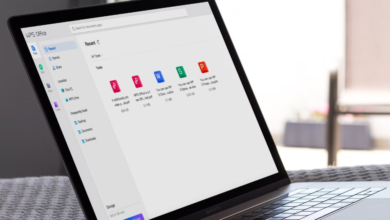Understanding the Use and Limits of Lie Detector Tests in Canada

Introduction to Polygraph Testing
A polygraph, more commonly referred to as a lie detector test, is a device used to measure and record physiological responses that are believed to be linked to truth-telling or deception. These physiological indicators typically include heart rate, blood pressure, respiration, and skin conductivity. The idea behind polygraph testing is that when a person is lying, their body exhibits stress responses that can be detected and recorded. While polygraph testing has long been popularized in films and television, its real-world application—especially in countries like Canada—is far more complex and controversial. In Canada, the use of lie detector tests is limited, and its results are generally not admissible in court. However, polygraph tests are still sometimes used in employment screenings, criminal investigations, and security clearances under specific guidelines.
How Polygraphs Work and What They Measure
Polygraphs operate on the assumption that lying produces distinct physiological changes. During a polygraph examination, a subject is connected to sensors that monitor their vital signs while answering a series of control and relevant questions. The test typically begins with baseline questions to establish normal physiological responses, followed by questions related to the matter under investigation. Trained examiners then interpret the results by comparing the responses to see if there are significant deviations when the subject is answering critical questions. Despite its scientific appearance, the process is not foolproof. There is considerable debate among scientists, psychologists, and legal professionals regarding the reliability and validity of polygraph testing. Factors such as nervousness, medical conditions, or even sociopathic tendencies can affect results, which is why the technology remains controversial.
Legal and Ethical Landscape in Canada
In Canada, the legal system treats polygraph evidence with significant skepticism. Canadian courts generally do not accept polygraph results as admissible evidence due to questions surrounding their reliability and the potential for prejudicial impact on juries. The Supreme Court of Canada has consistently ruled against admitting polygraph evidence, citing that the science behind the tests does not meet the standards required for courtroom evidence. Nonetheless, law enforcement agencies may still use polygraph tests as an investigative tool, primarily to support or disprove a suspect’s or witness’s narrative. However, participation in such tests is entirely voluntary, and individuals are not legally required to submit to a lie detector test. Furthermore, some employers in Canada may use polygraph testing as part of a pre-employment screening process, particularly in high-security sectors, although this practice remains controversial and is discouraged by human rights organizations.
Effectiveness and Public Perception
Public opinion on polygraph testing in Canada is mixed. Some view it as a useful tool to determine truthfulness in sensitive matters, while others see it as an outdated and unreliable method that may infringe upon individual rights. The scientific community generally leans toward skepticism, pointing out that there is no guaranteed physiological marker for lying. People can learn techniques to beat the test, and others may produce false positives due to anxiety or other unrelated stressors. This has led many experts to conclude that polygraphs should not be used as the sole basis for important decisions, whether in the justice system or employment. Additionally, human rights advocates warn that misuse of polygraph testing can lead to privacy violations and discrimination, especially if individuals are denied opportunities based on inconclusive or flawed test results.
Location in Canada
- Vancouver – 525 W 8th Ave #800, Vancouver, BC V5Z 1C6, Canad,
- Calgary – 685 Centre St S, Calgary, AB T2G 5P6, Canada
- Ottawa – 116 Albert St Suites X, Ottawa, ON K1P 5G3, Canada
- Hamilton – 1601 King St. East, Hamilton, ON L8K 1T5
- Laval – 3221 Highway 440 West, suite 222, Laval, QC H7P 5P2
- Edmonton – First Edmonton Place, 10665 Jasper Ave 14th Floor, Edmonton, AB T5J 3S9, Canada
Read also: The Technology Behind WhatsApp Web’s QR Code Login
The Future of Lie Detection in Canada
As technology evolves, so too does the field of lie detection. Canadian researchers and legal experts are exploring alternatives such as voice stress analysis and brainwave monitoring, but none have yet emerged as reliable replacements for traditional polygraph testing. Meanwhile, polygraphs continue to occupy a controversial space—used in some investigative and employment contexts but largely excluded from formal judicial proceedings. As public awareness and understanding of the limitations of polygraph tests grow, it is likely that their role in Canadian society will continue to be scrutinized and regulated. For now, Canadians should remain cautious about the use of polygraph tests, recognizing both their potential and their significant limitations within the legal and ethical framework of the country.



